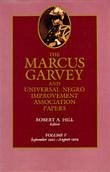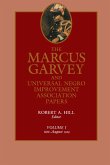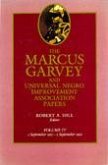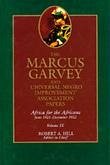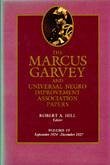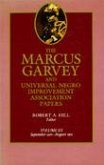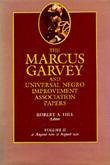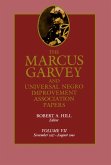The fifth volume of this monumental series chronicles what was perhaps the stormiest period in the history of Marcus Garvey and the UNIA: the aftermath of the tumultuous 1922 convention. Outside the UNIA a growing list of opponents, including the black Socialists A. Philip Randolph and Chandler Owen, and the NAACP's Robert Bagnall and William Pickens, were turning their criticism of the controversial Jamaican into a "Garvey Must Go" campaign. Meanwhile, Garvey's former UNIA ally, Rev. J. W. H. Eason-who had been impeached at the 1922 convention-was emerging as a dangerous rival. Eason was assassinated in January 1923, just as he was to testify against Garvey in the latter's mail-fraud trial. Though it may be impossible to determine if Garvey had a role in the killing, the murder generated negative publicity that did untold damage to Garvey and his organization. Throughout all this, the federal government pressed its case against Garvey and his co-defendants on mail-fraud charges stemming from irregularities in the sale of Black Star Line stock. In June 1923 a jury found Garvey guilty and he was sentenced to five years in prison. Internecine feuds wracked the movement while Garvey languished in New York City's Tombs prison, awaiting bail so that he could mount an appeal. As soon as he was released in September 1923, he turned his energy to reconsolidating the UNIA. while considering the best appeal strategy. For the UNIA Garvey resurrected an old commercial message: that economic salvation was to be found in ships. In March 1924 he reconstituted the defunct Black Star Line as the Black Cross Navigation and Trading Co. and bought a ship, the S. S. General Goethals, in time for a tour of it by convention delegates. The shipboard tour proved to be a highlight of the 1924 convention, during which UNIA leadership was stunned by the Liberian government's formal repudiation of the movement's African colonization plans. Despite the UNIA's unexpected setback in Liberia, the movement continued to spread into new places, particularly in America's southern states. Generously illustrated with photographs and facsimile documents, Volume V of The Marcus Garvey and Universal Negro Improvement Association Papers upholds the impeccable editorial standards of the first four volumes. Once again, a wealth of new sources collected from around the world demonstrates how vitally important Marcus Garvey and the mass movement he controlled were to Afro-American history.
This title is part of UC Press's Voices Revived program, which commemorates University of California Press's mission to seek out and cultivate the brightest minds and give them voice, reach, and impact. Drawing on a backlist dating to 1893, Voices Revived makes high-quality, peer-reviewed scholarship accessible once again using print-on-demand technology. This title was originally published in 1987.
The fifth volume of this monumental series chronicles what was perhaps the stormiest period in the history of Marcus Garvey and the UNIA: the aftermath of the tumultuous 1922 convention. Outside the UNIA a growing list of opponents, including the black So
This title is part of UC Press's Voices Revived program, which commemorates University of California Press's mission to seek out and cultivate the brightest minds and give them voice, reach, and impact. Drawing on a backlist dating to 1893, Voices Revived makes high-quality, peer-reviewed scholarship accessible once again using print-on-demand technology. This title was originally published in 1987.
The fifth volume of this monumental series chronicles what was perhaps the stormiest period in the history of Marcus Garvey and the UNIA: the aftermath of the tumultuous 1922 convention. Outside the UNIA a growing list of opponents, including the black So
Dieser Download kann aus rechtlichen Gründen nur mit Rechnungsadresse in A, D ausgeliefert werden.

